Seasons – Fall 2016
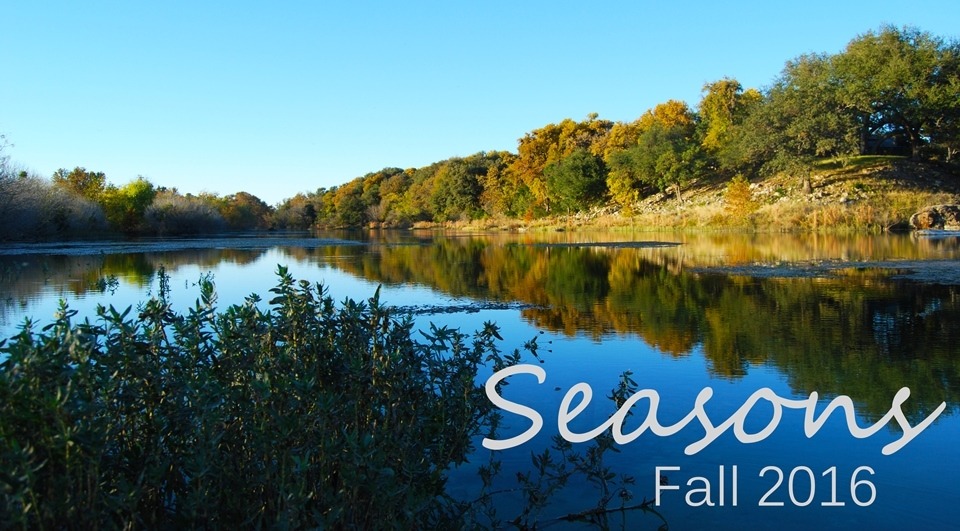
From the Plateau Land & Wildlife Management Team,
It’s hard to believe, but we’re nearly ¾ of the way through 2016. And although this Autumn Equinox hardly feels like autumn, we know cool weather is almost within reach. While this summer wasn’t as wet as last, and not as hot as most, we can all agree we’re ready for the crisp fall weather, changing leaves, and maybe for some, even the holiday season that’s right around the corner.
Along with cooler weather, fall brings an eagerness to reconnect with our land. Whether that’s through deer and quail hunting, census counts or simply checking up on the wildlife needs of your land – now is a great time to get out there and fulfill some activities. This issue of Seasons will highlight many great activities most effective during the fall, the importance of annual reports – sometimes the only proof you have of your activities, and The Conservation Leaders of Tomorrow.
Later this month and throughout October, Plateau will be preparing for fall by providing our clients, friends, colleagues and Texas landowners plenty of opportunities to learn more about Wildlife Management Tax Valuation (WMV). Plateau’s fall seminar schedule is full of stops and you’re all invited to come and join us in a city near you.
We hope this issue of Seasons will help you get excited about Fall and all the joy that comes with it. If there’s any way Plateau can help you protect, enhance or better enjoy your land during this special season, just give us a call. We’ll be here when you need us.
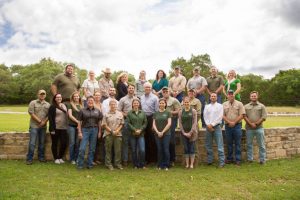 Until next season and Seasons,
Until next season and Seasons,
The Plateau Team
Table of Contents
Conservation Leaders for Tomorrow
Annual Reports
Plateau Fall Seminars & Webinars
Fall Wildlife Management Activities Checklist
Plateau Credited CE Courses
Service Agreements
Estate Planning with Blended Families
Plateau Land Group Featured Listing
Conservation Leaders for Tomorrow
A Hunting Heritage Program for Natural Resource Graduate Students and Professionals by Sarah N. Kahlich, AWB, Staff Biologist I
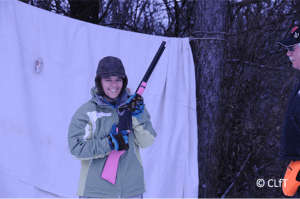
Sarah at the CLfT Professional Workshop (Jan 2011) during a field exercise.
Conservation Leaders for Tomorrow (CLfT) was a program I had never heard of until I started graduate school. I was working at a refuge in south Texas and my boss at the time offered me the opportunity to attend one of these CLfT workshops for professionals.
I went to the workshop with only a little bit of information on its purpose and mission but came away with so much more. Conservation Leaders for Tomorrow is a hunting heritage program developed by the Max McGraw Foundation in Dundee, Illinois and Wildlife Management Institute (WMI). To become a participant in the program you need to be nominated by either an instructor or wildlife professional who has been through the program, which is geared towards graduate students and professionals in the natural resource field. Unlike a hunter’s education class, this program is developed for natural resource students who have never hunted before or hunted only a few times in their life.
Why was CLfT’s hunting heritage program developed? An excellent question. Natural resource professors and professionals noticed a decrease in the number of natural resource students who participated in hunting and the disconnect between these students and their knowledge in the importance of hunting. The CLfT program was not developed to turn students into hunters. That’s not to say the workshop won’t open the door to them wanting to hunt more or opposing hunting altogether. The goal and mission is to give students and natural resource professionals the tools, knowledge, and awareness about hunting – why it’s important and why many people hunt, and to give future professionals the ability to relate and communicate with hunters who often play an important role in our community.
Some students participating in the workshop come into the program with negative connotations about hunting, hunters, and firearms. Though, when they leave there is a greater understanding of who hunts and why, handling of firearms, interactions with the instructors who themselves are hunters and have a great interest in sharing their knowledge of hunting. We all know there are some negative stereotypes about hunters; many times because of the unethical ‘hunters’ who give the ethical and moral hunters a bad reputation. In a way, the program helps with this potential stereotype by letting natural resource students interact with instructors who make ethical decisions and actions when they are in the field hunting.
Conservation Leaders for Tomorrow offers student workshops, professional workshops, and instructor workshops, which trains future instructors of the program. There are 14 workshops held each year usually in the fall and early spring in different states. Workshops are typically 4 days long and blend interactive classroom discussions about the history of hunting, ethics, and many other hunting topics, with field exercises incorporated throughout the day.
After attending the professional workshop, CLfT was brought to Texas and held at the Welder Wildlife Refuge in Sinton, TX. Since I worked at the refuge in graduate school I helped with the first and second workshops, and the third one I attended because it is a hunting heritage program that has made a difference in my life. At the second and third workshop, I knew the ropes and was an honorary instructor since I had never been through an official instructor training. I helped current instructors and was allowed to run some of the field exercises and interacted with the students. Many students still showed a bit of hesitance when the field exercises required the handling of an unloaded firearm. These exercises allowed me to have one-on-one time with a small group of students, many who had questions about hunting and firearms but did not want to ask their questions out loud in the classroom. They asked about my experience when I was going through the program since I too had never hunted or handled anything besides a BB and pellet gun before attending a workshop.
Flash forward to 2016, I was nominated to attend an instructor training workshop in July. I went back to Dundee, IL along with 9 other professionals to learn how the workshops are run, how the presentations and topics are presented to students, and goals of each field exercise and classroom presentation. Even though I helped with a few workshops, it was essential to hear the reasoning behind how and why certain presentations were covered in the workshop and why they were presented the way they were. Many things made more sense with the instructor training and helped me develop a better understanding of why the discussions, classroom materials covered, and field exercises are necessary for those who have never or rarely hunted before.
I was honored to be nominated to become a CLfT instructor and believe CLfT is an excellent hunting heritage program. The instructors are top notch, they have a plethora of knowledge about hunting and firearms, and topics relating to the wildlife sciences, and really care that each student and professional leaves the program with a newfound knowledge about what it means to be a hunter. The instructors are open minded when a student has questions and caring when it is obvious being around a firearm has a student on edge. Every instructor I have met and worked with in CLfT made me want to become an instructor and now I have the opportunity to share my knowledge about hunting and conservation with other natural resource students and professionals.
To learn more about Conservation Leaders for Tomorrow visit their website at http://clft.org/.
Back to TopBack to Top
Annual Reports
By Kameron Bain, Business Development Manager
As we celebrate the first day of Fall, it is a reminder that it’s time to start wrapping up your 2016 wildlife management activities and start thinking about your 2016 annual reports. With more Central Appraisal Districts (CAD) requesting reports each year, we want to remind landowners the importance of keeping good records. CADs will request Annual Reports to document wildlife management activities in place of a site visit, therefore documentation for your 2016 wildlife management activities is key. We can never stress enough that it is imperative all qualifications are met and well documented for each year. With only three months left in 2016 we recommend you review your activities and documentation so you’re prepared.
If you need help we offer annual report preparation for $495. A Plateau Annual Report includes a TPWD annual report prepared by a Plateau biologist, all documentation you provide or Plateau has on file for you and thorough review by our biologists and experienced team of wildlife professionals for accuracy. We have recently added some new benefits offered to landowners who purchase an annual report early.
- Our team will send you periodic reminders throughout the year to make sure you’re keeping up with your documentation
- Our reminders will include helpful tips and suggested seasonal activities
- We can review your documentation before the end of the year to ensure you’re in compliance – if you aren’t quite there you have time before the end of the year to complete your activities
Remember, a well done and complete annual report can make all the difference. Your annual report is your best opportunity to show the appraisal district what you’re doing and is the only thing they may ever see that shows them your commitment to wildlife management. If you have any questions about annual reports or would like to talk to someone about purchasing a Plateau Annual Report, feel free to give us a call at (512) 894-3479 or email [email protected].
Back to TopBack to Top
Plateau Fall Seminars & Webinars
By Molly Cleveland, Marketing Associate
Every fall, Plateau Account Managers travel around the great state of Texas to educate folks about the many benefits of Wildlife Management Tax Valuation (WMV). These seminars are free and open to anyone interested in learning more about WMV. During each seminar, Plateau Account Managers will cover:
- An overview of Wildlife Management Tax Valuation
- The 7 wildlife management activity categories
- Traditional Ag & Timber vs Wildlife – is it right for you?
- State and county requirements
- Concrete answers to any concerns you may have
- How Plateau can help
Though some of you may already be in WMV, these seminars will also benefit you and anyone who owns rural land in Texas, including those who are currently in Ag. To learn more about dates, times and locations of these seminars, visit our web page.
If you can’t make it to a seminar, we will be hosting two Wildlife Management webinars in October covering the same information covered in the seminar. You can watch the presentation and ask any questions you may have. To register for either of these webinars visit our web page.
Back to TopBack to Top
Fall Wildlife Management Activities Checklist
By Kameron Bain, Business Development Manager
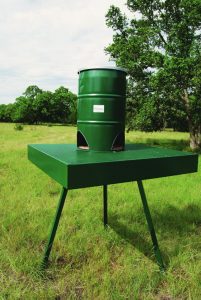 Fall is here, school is back in session, and our everyday lives are getting back to normal, and hopefully soon so will those temperatures. This is why it is a great time of year to complete your wildlife management activities. With the end of the year quickly approaching, be sure to review your wildlife management plan to make sure you are meeting all of your requirements and that you have all the proper documentation. There are several key activities to be done in the fall and if you find that you have fallen behind there are plenty of activity options to choose from.
Fall is here, school is back in session, and our everyday lives are getting back to normal, and hopefully soon so will those temperatures. This is why it is a great time of year to complete your wildlife management activities. With the end of the year quickly approaching, be sure to review your wildlife management plan to make sure you are meeting all of your requirements and that you have all the proper documentation. There are several key activities to be done in the fall and if you find that you have fallen behind there are plenty of activity options to choose from.
- Wintering and Resident Bird Survey – Start November 15
- Remote Camera Mammal Survey
- Imported Red Fire Ant Control
- Brush Management
- Re-seeding wildflowers and native plants
- Strip mowing and Discing – Start November 1st
- Chemical control of Huisache and prickly pear
- Cut-stump herbicide treatments
- Tree and shrub planting – Start late Fall/Winter
- Brush Pile Construction
- Products Installs – Feeders, Water Tables, and Shelter
Plateau Credited CE Courses
By Molly Cleveland, Marketing Associate
Our Plateau team is full of biologists, technicians, and many in-house wildlife enthusiasts who love to spread the word and help landowners with wildlife management every step of the way. But did you know Plateau also has a team of licensed continuing education (CE) course instructors?
Throughout the summer some of our account managers have ventured around central Texas to teach realtors, brokers and many other professionals about the Wildlife Management Tax Valuation (WMV). Plateau’s 1-hr credited & Texas Real Estate Commission (TREC) approved CE course teaches the many benefits of selling rural land with a wildlife management tax valuation.
In recent years, WMV has become especially popular with new buyers of rural land looking for a recreational retreat and sellers who want to make their property more marketable to buyers outside of the ranching or farming business. Whether you’re looking to buy, sell or are in the industry, we want you to know we are always here to help you with any questions or concerns you may come across.
If you would like to schedule a time for a Plateau representative to come to your office or your area and teach this 1-hr CE course just give us a call or email Molly at [email protected].
Back to TopBack to Top
Service Agreements
By Kameron Bain, Business Development Manager
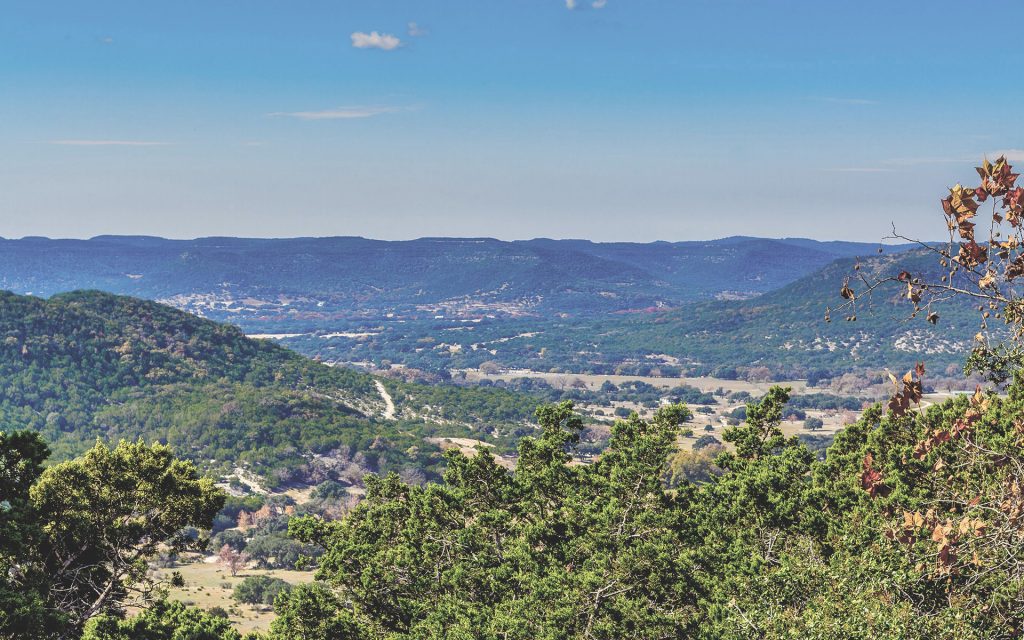
Each year over 300 landowners purchase an Annual Wildlife Management Service Agreement to help implement their wildlife management plans. Here are just a few benefits these landowners are taking advantage of each year:
- Ease and Peace of Mind: Plateau will take care of your activities giving you more time to enjoy your property resting easy knowing your valuation is being taken care of and you are moving toward the goals set forth in your Wildlife Management Plan.
- Proper Documentation: Not only are your activities being covered, but also well documented by our team of Wildlife Management Service Technicians and Biologists. When the CAD asks for your annual report, you will be prepared.
- Annual Review: As part of the renewal process, the Plateau team reviews your property and all the documentation collected throughout the year to ensure you continue to meet the guidelines for compliance and your activities are productive and working toward your property goals. We then make recommendations on improvements or changes to ensure compliance and to assure you get the most out of your service agreement.
- Customized for your needs: Whether your goal is simple compliance, becoming a true land steward, or somewhere in between, we can customize the agreement to suit your goals.
- Customized for your budget: We will work with you to create an agreement that works for your property as well as your wallet. Plateau service agreement clients have options of paying all at once or quarterly throughout the service agreement year to make wildlife management even easier.
Plateau has become a leader in offering wildlife management by providing consistent, professional service to hundreds of landowners. When you are connected to Plateau through an Annual Service Agreement you will know you are not in the wildlife management game by yourself. We’re with you every step of the way and only a phone call or a visit to the office away.
Back to TopBack to Top
Estate Planning with Blended Families
By Margaret Menicucci, An Estate Planning Attorney with Braun & Gresham, PLLC.
It is estimated that about 65% of remarriages in America involve children, making them what we have come to call “blended families.” These families face unique challenges in planning how to protect loved ones and pass on assets to the next generation. Without a good estate plan, assets can be controlled by family members who don’t understand or may not value your goals and intentions, and worse, beloved members can be excluded from inheritance or left without adequate support.
When a parent of minor children re-marries, frequently the children’s other parent, the ex-spouse, continues to share custody. If the remarried parent dies, the ex-spouse will not only have custody of the children but also may gain control of the assets inherited by the minor children. This result can be avoided by creating trusts for the benefit of the children and designating someone other than the ex-spouse as the trustee. Candidates for trustee include the new spouse, a sibling or grandparent. Planning and communication will also help you create a role for your current spouse in the children’s upbringing.
Another challenge for any blended family (those with minor children or adult children) is providing an inheritance to the children while ensuring long-term support for the current spouse. It is reasonable to expect that the loyalties between the children and a non-parent spouse are not as strong as the loyalties between a parent and child. If your surviving spouse inherits all of your assets, you can’t guarantee that some of those assets will ultimately pass to your children from a prior marriage. Similarly, if your children inherit all of your assets, you can’t ensure that they will use some of those assets to support your surviving spouse. Employing insurance to provide an inheritance and crafting trusts for the benefit of your spouse or children, allows you to best provide for your family if you passed away.
If rural land is an important asset in your blended family, specific strategies developed in your will or trust can ensure that the land is passed down and managed by the family members you deem most appropriate. In addition to designating who receives the land, you can set aside certain financial assets to assist your family in managing the land and avoiding partition.
These realities can be hard to discuss, but discussion and planning are critical to caring for the family that you love. We frequently guide blended families through this process, identifying priorities, protecting family members and assets, communicating with loved ones, and seamlessly passing family land to the next generation. While the family is together for this holiday season, have these important conversations with them. I would be happy to meet with you and your family to develop a plan that is specific to your family’s goals and needs.
Back to TopBack to Top
Plateau Land Group Featured Listing
Salado Creek Sustainable Living
 This 15.07 acre farm features Salado Creek frontage, a remodeled 3,000 sq. ft. home, workshop, greenhouse, beautifully landscaped gardens, and could easily go off the grid with its solar panels, water wells, and generator
This 15.07 acre farm features Salado Creek frontage, a remodeled 3,000 sq. ft. home, workshop, greenhouse, beautifully landscaped gardens, and could easily go off the grid with its solar panels, water wells, and generator
View all of Plateau Land Group’s listings.
Back to TopBack to Top




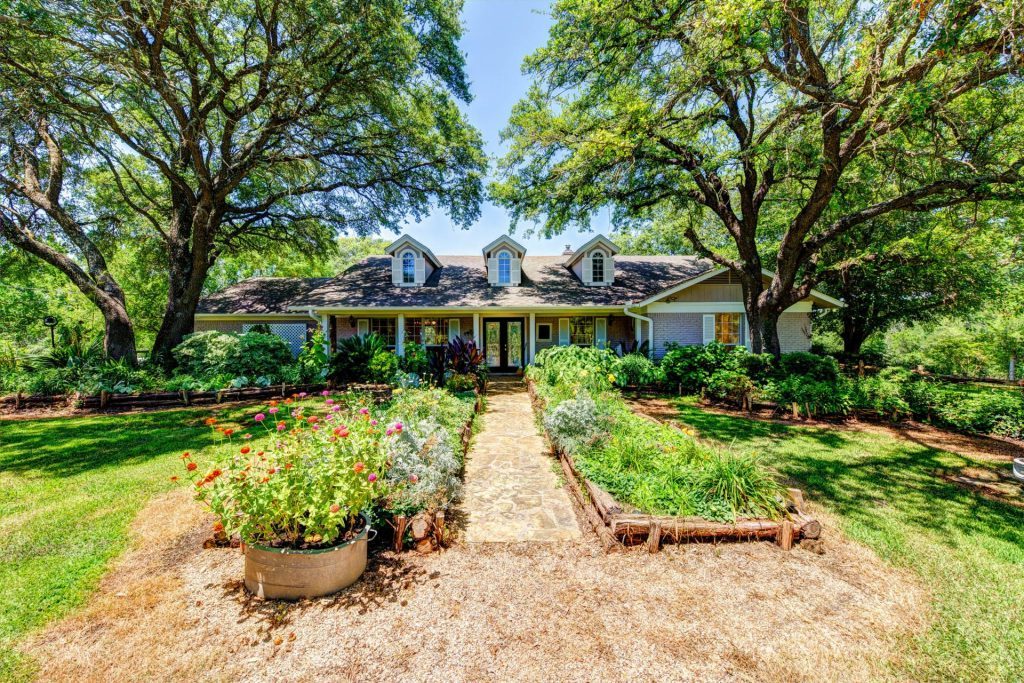



Sorry, the comment form is closed at this time.